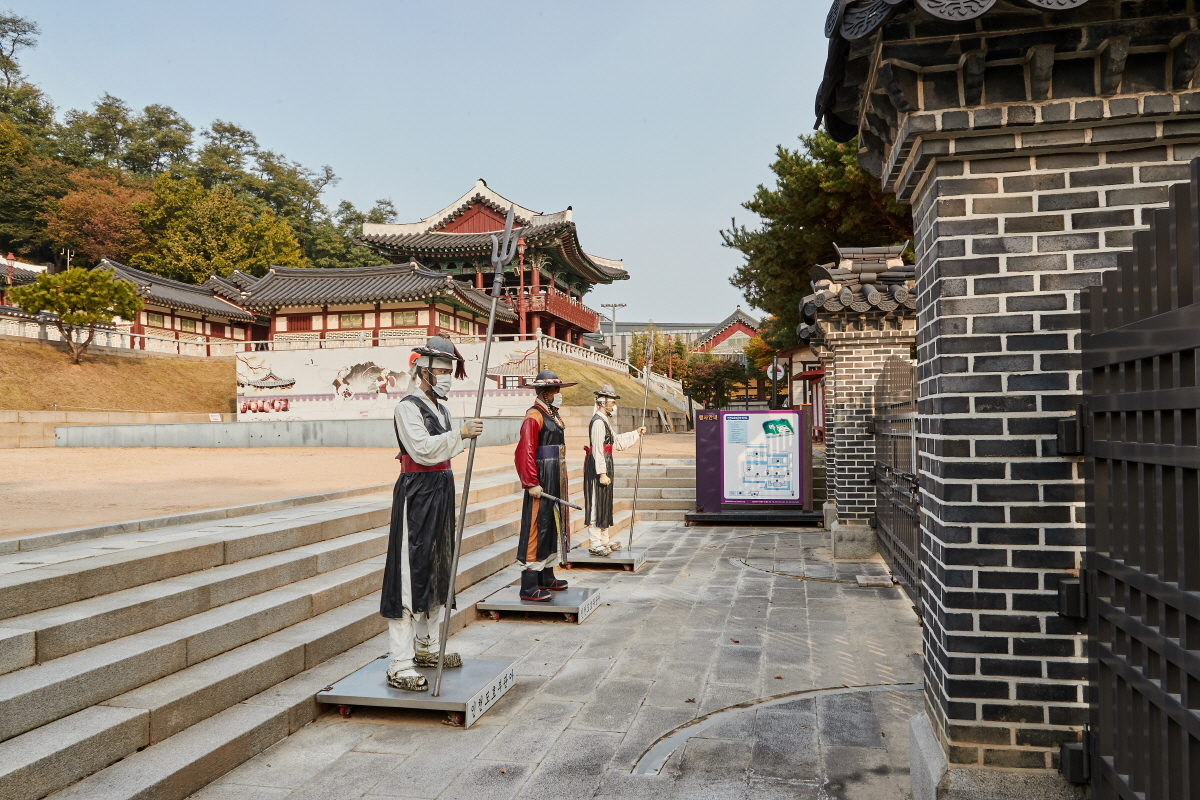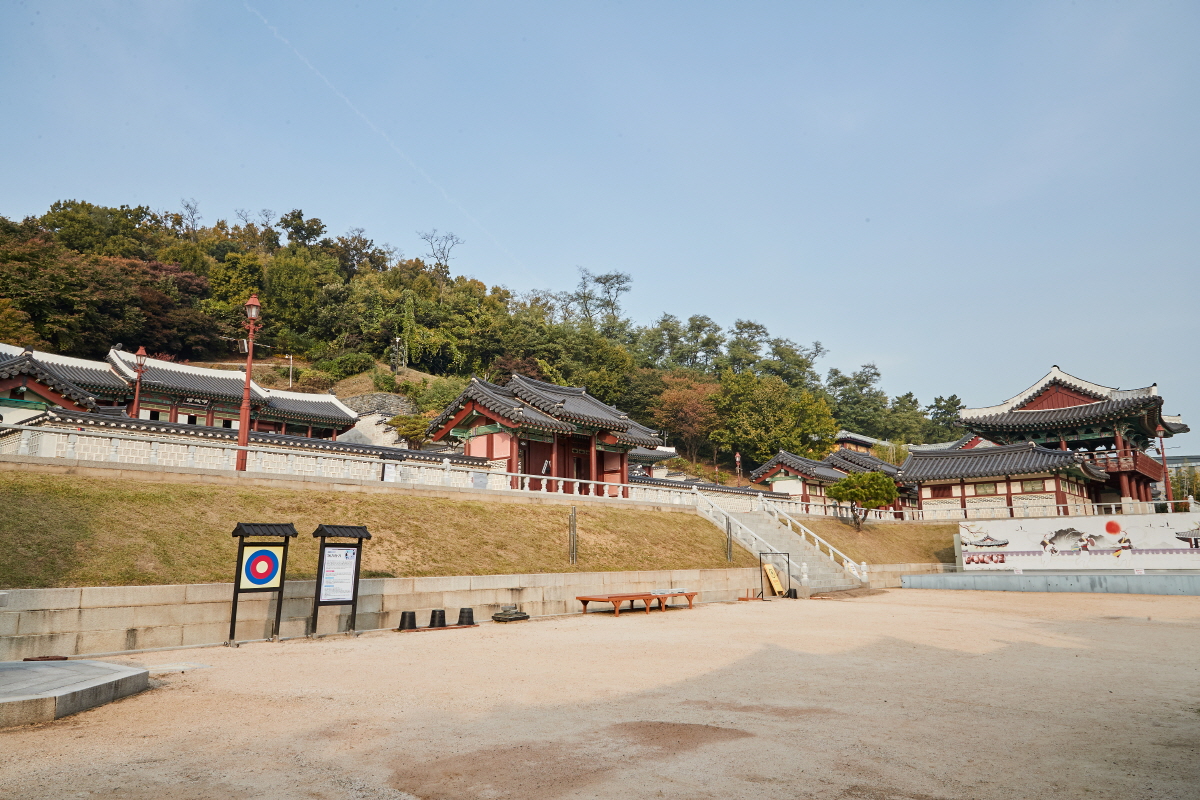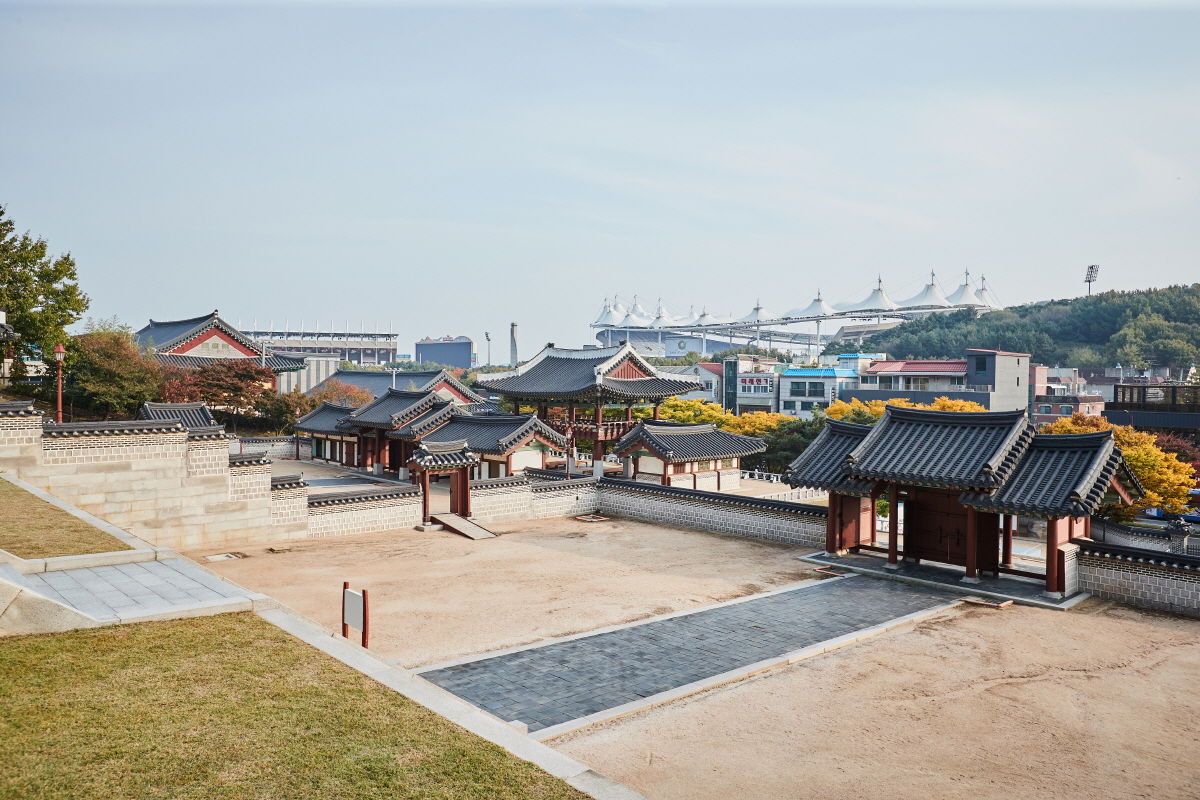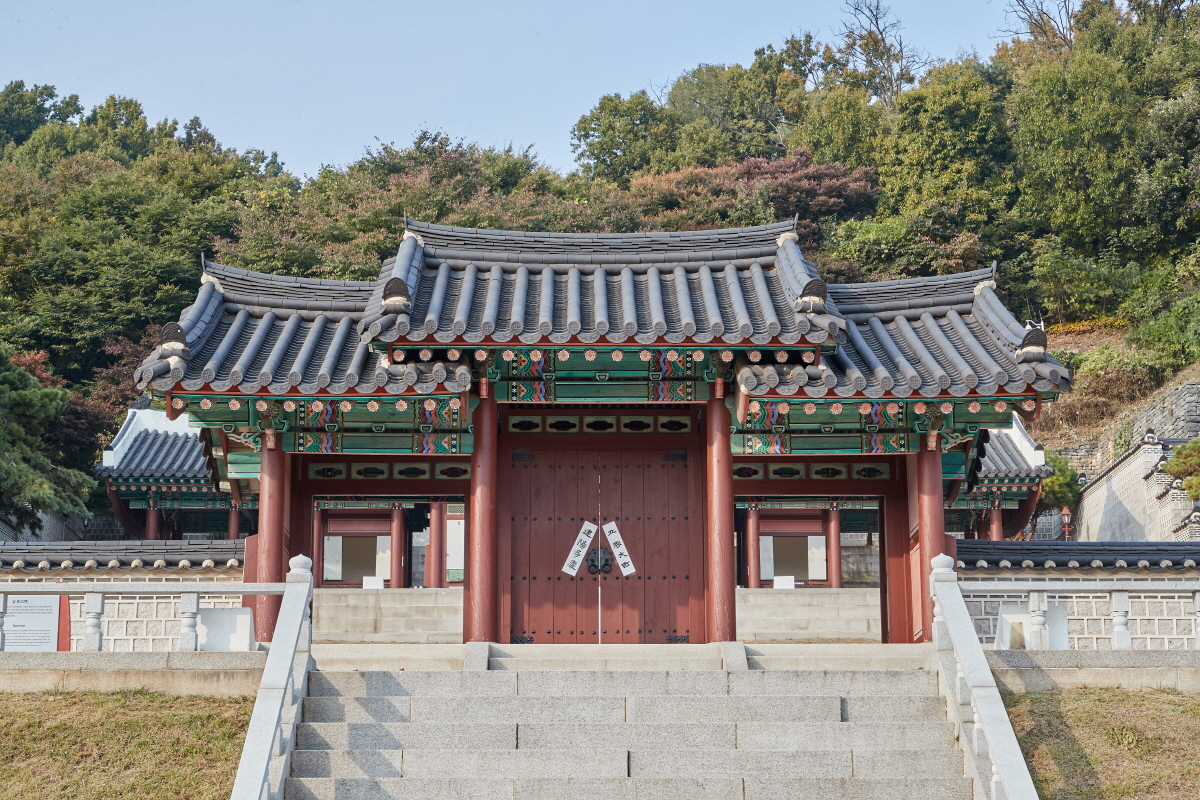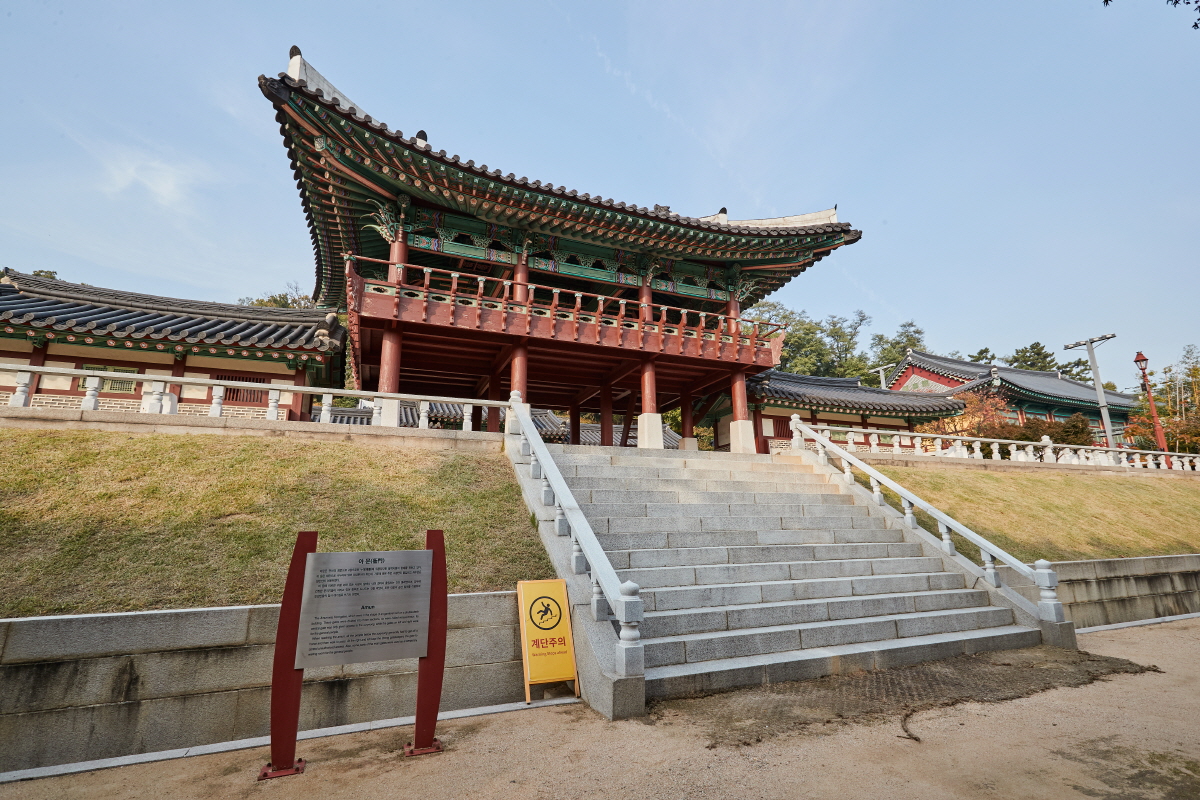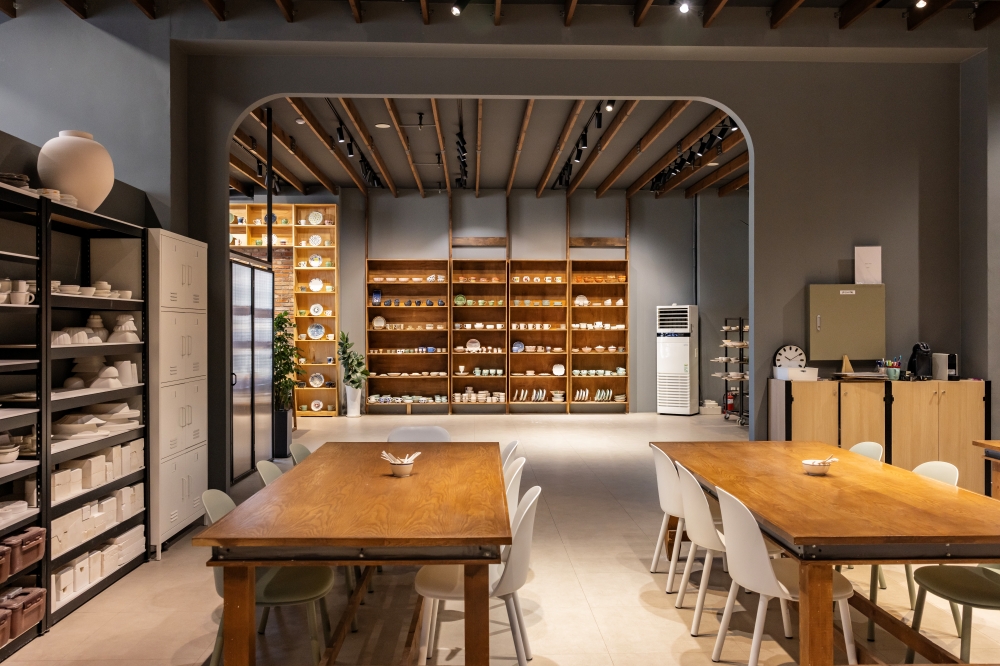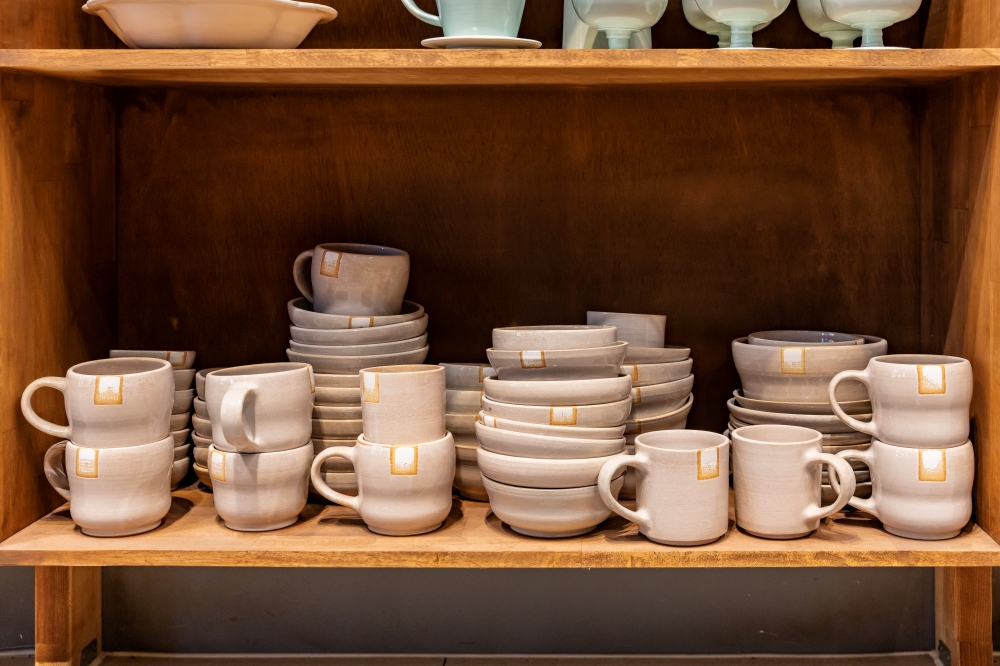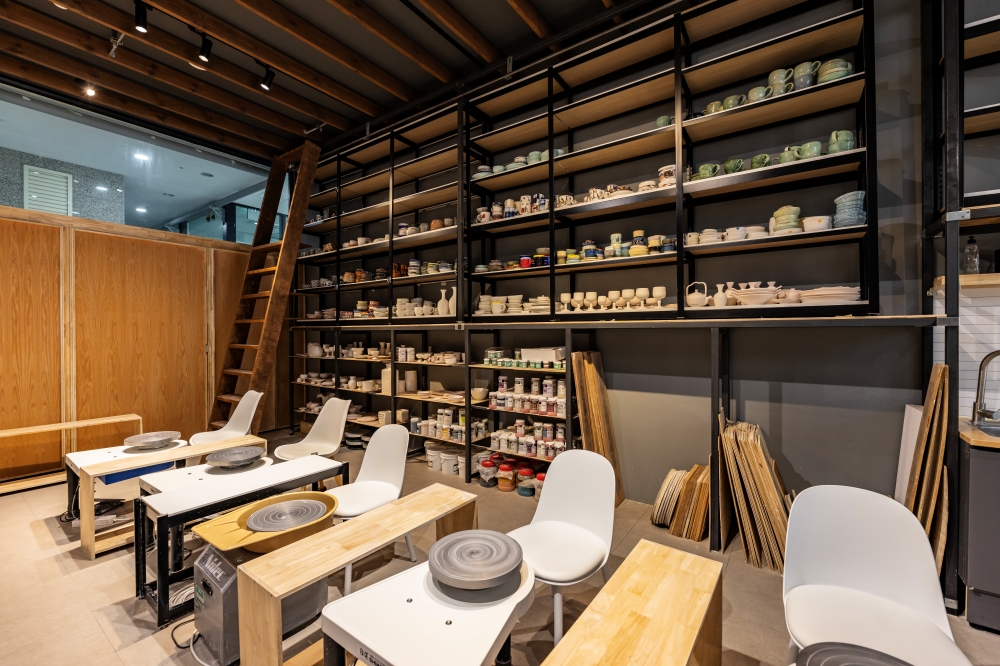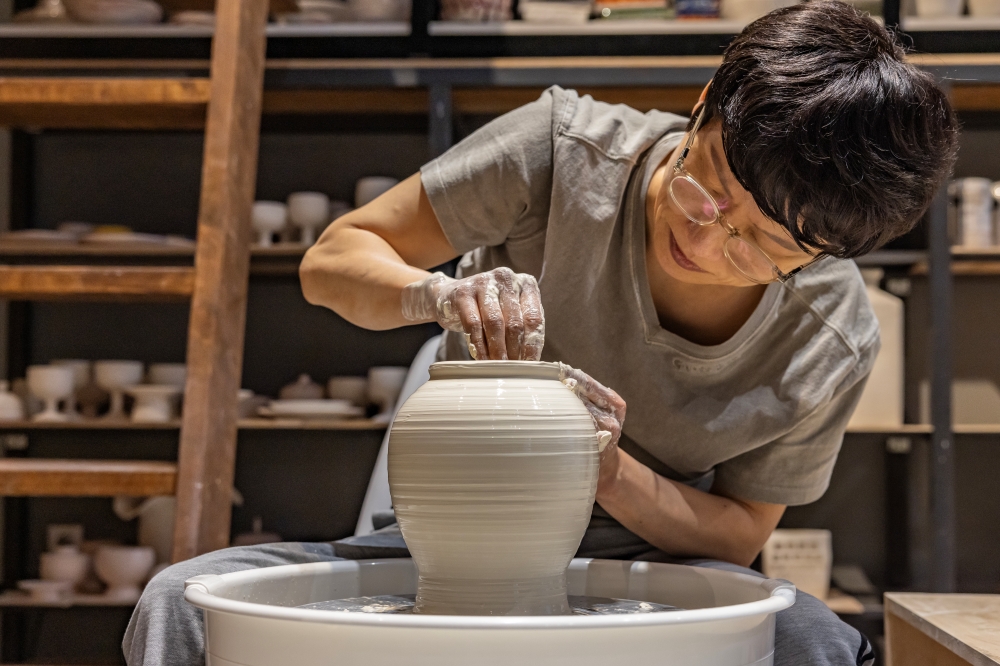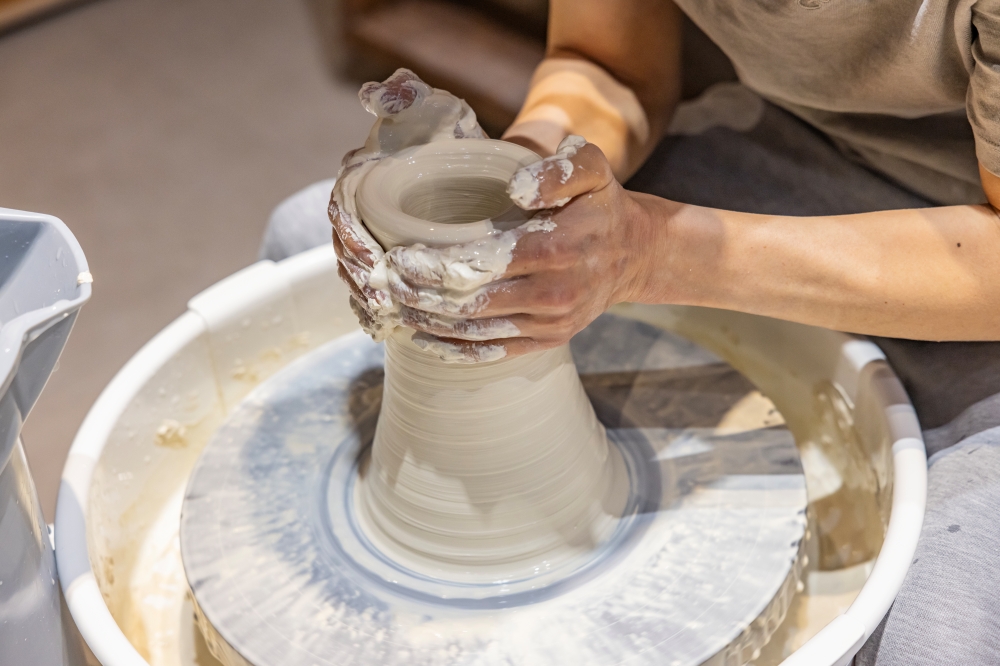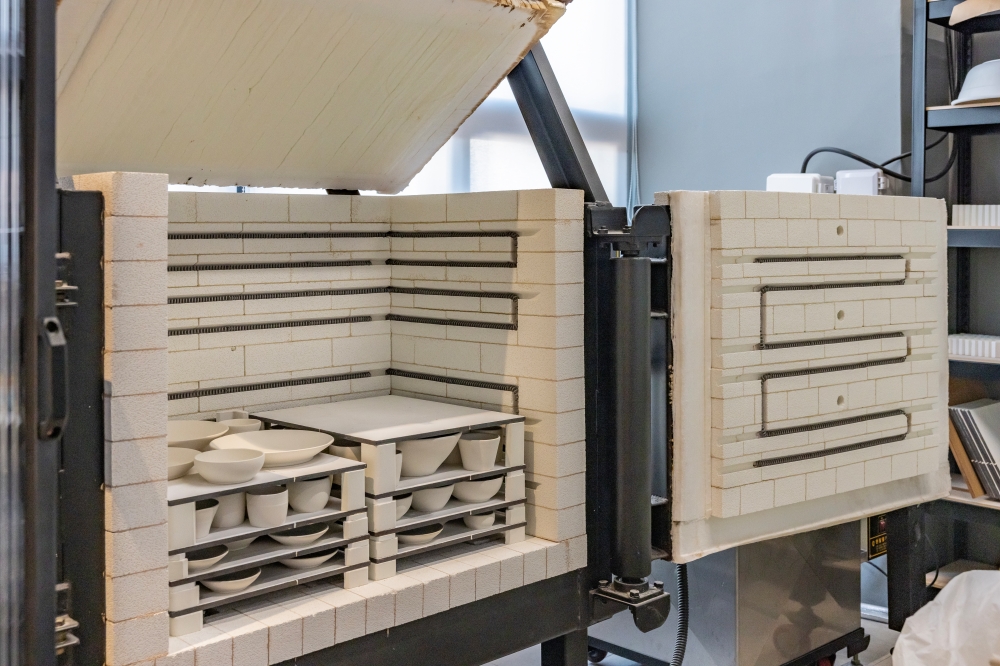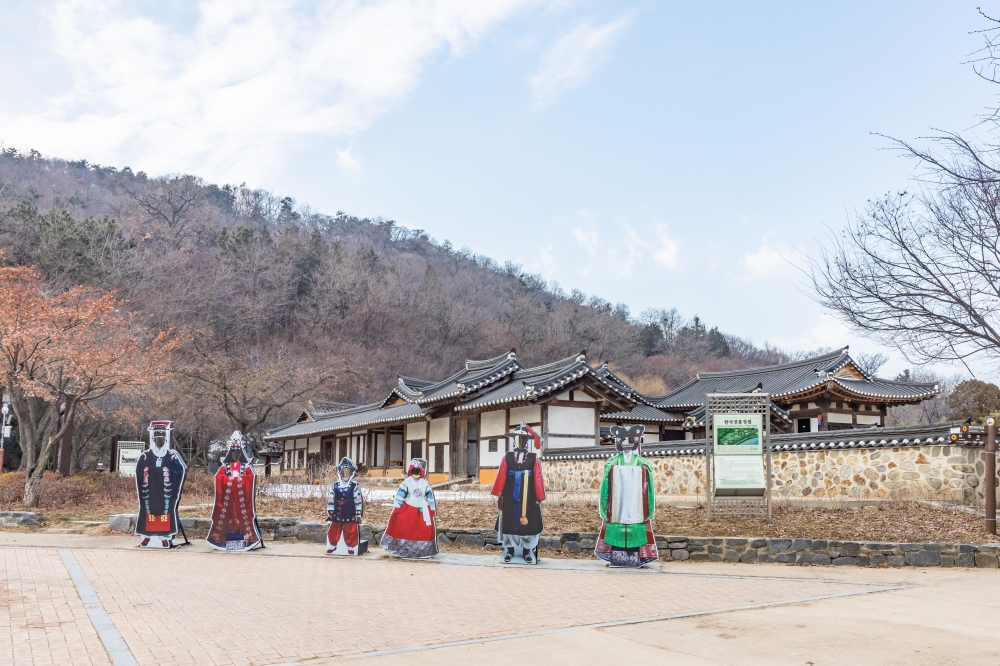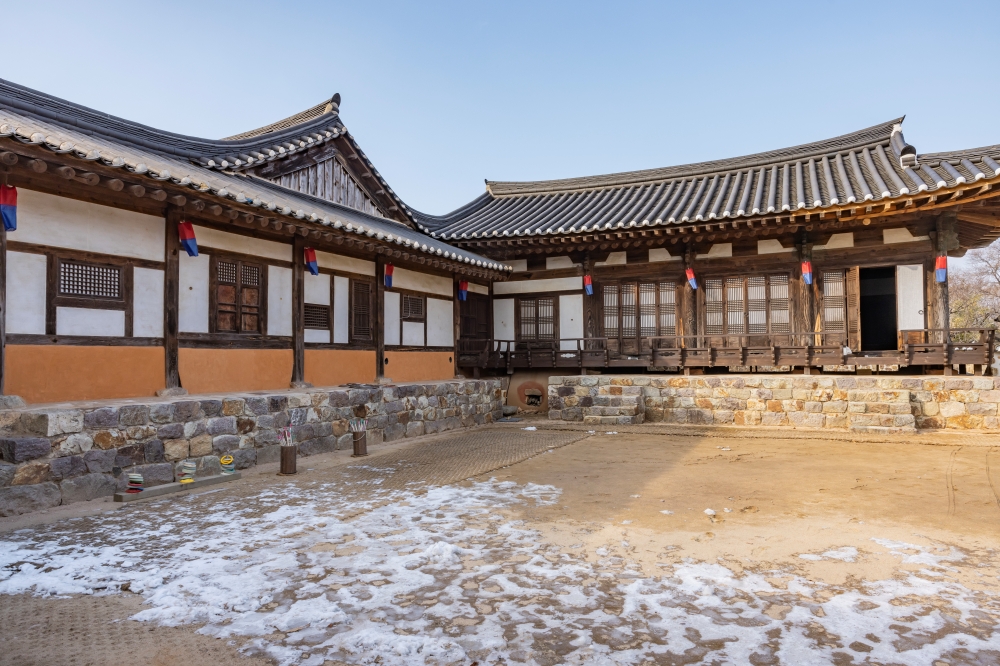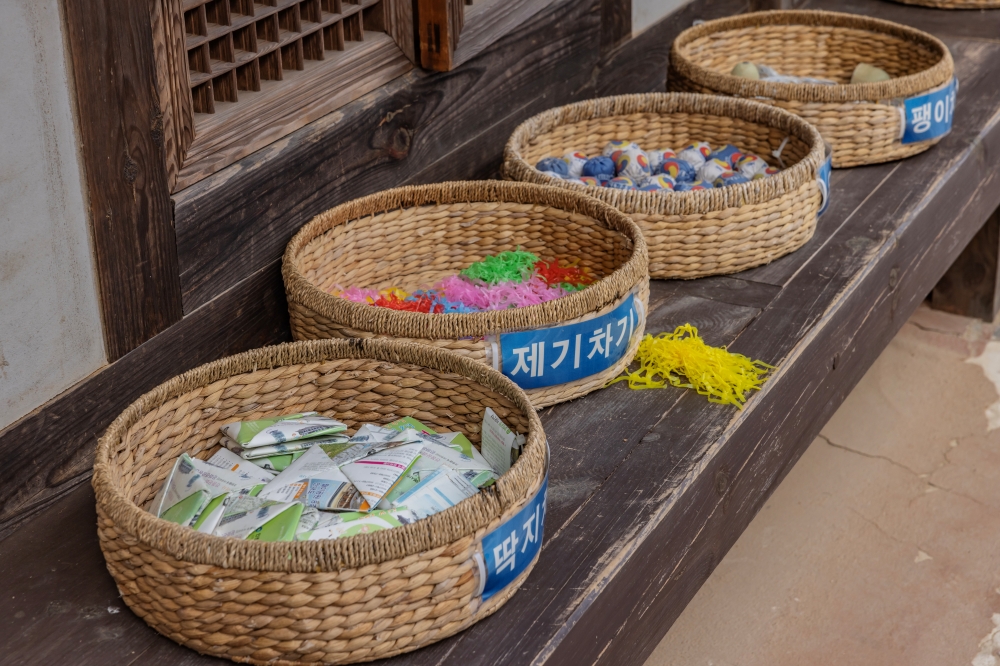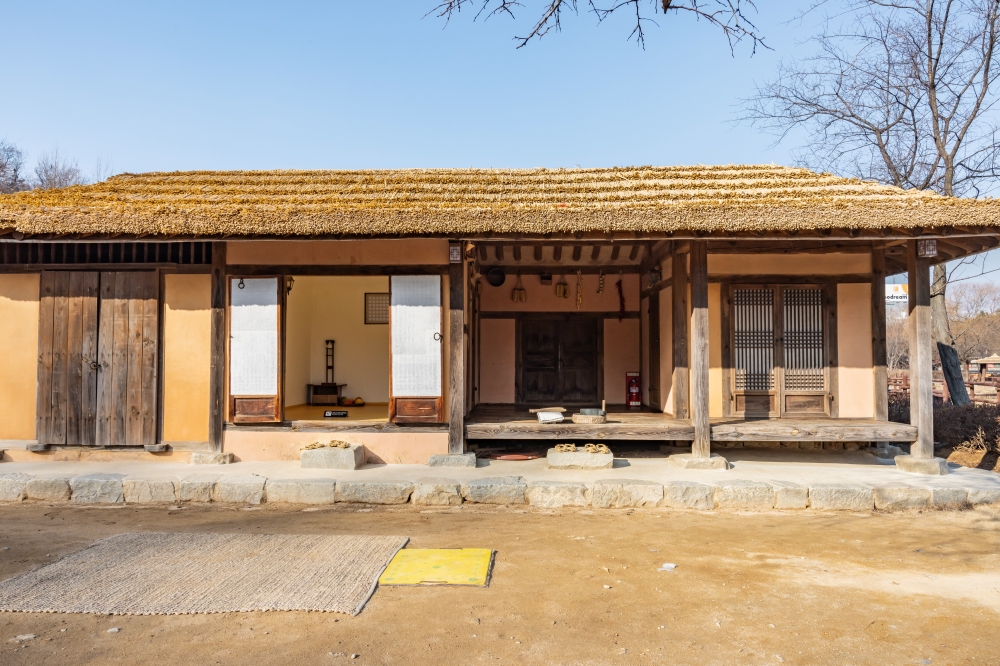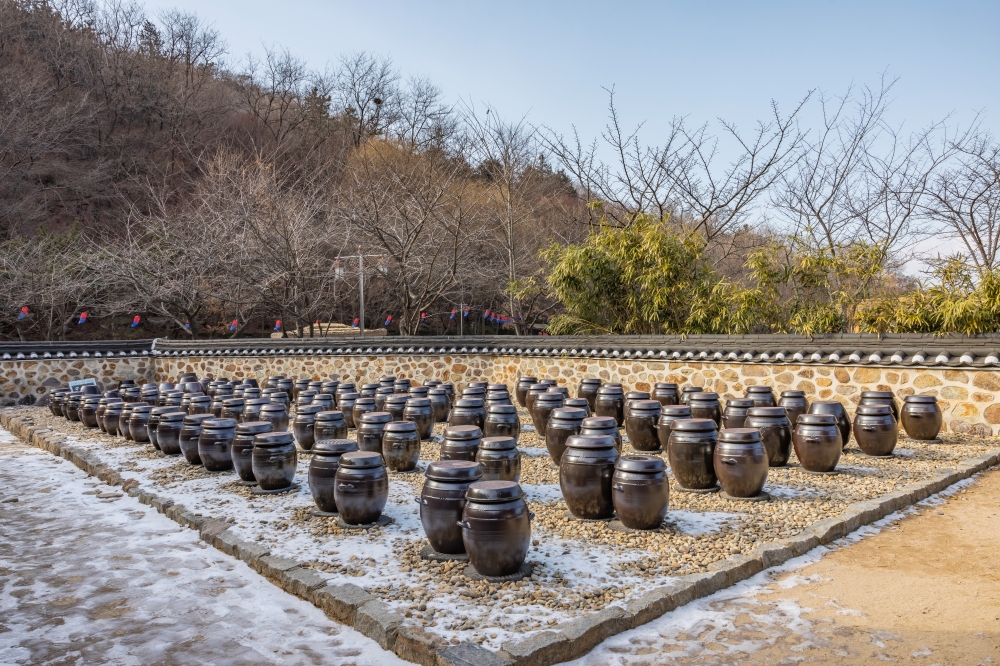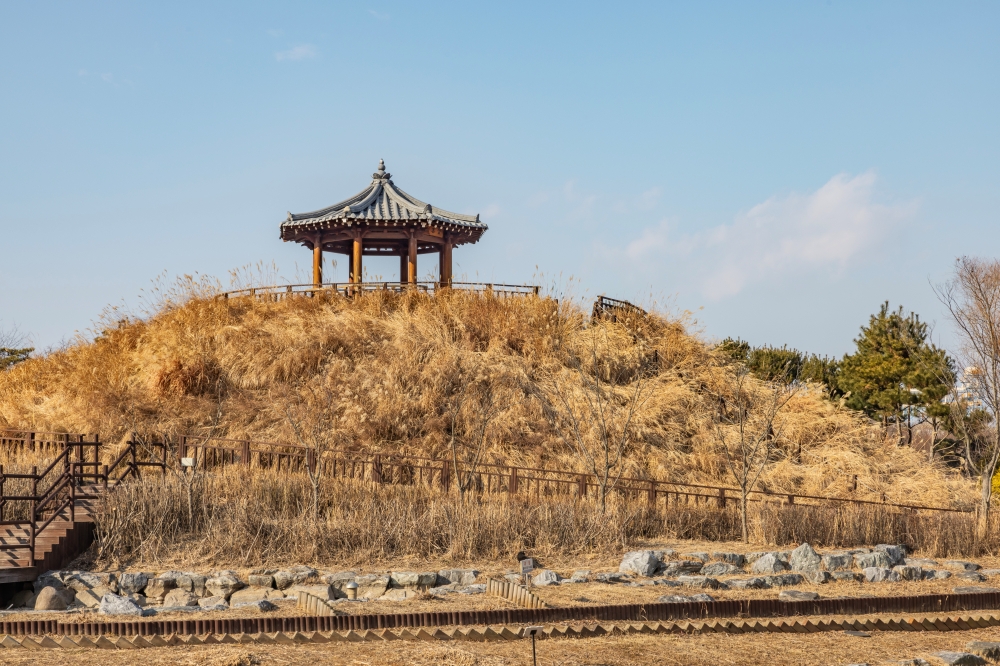From historic sites that showcase the wisdom of our ancestors to traditional markets filled with local delicacies prepared by friendly
merchants and hands-on cultural experiences perfect for creating cherished family memories, there’s something for everyone to enjoy!
Traditions are meant to be lived, not just observed. This New Year’s, make your own sochang (pure cotton) handkerchiefs and try jegichagi,
just like in Squid Game 2, for a truly immersive cultural experience.
“The Handkerchief I Made—How Soft It Is!” Ganghwa Sochang Experience Center
It is said that sochang is used as “one bolt in life, one bolt in death,” as it was traditionally used for both newborn diapers and tying cloths for coffins.
Woven from natural cotton thread, this soft and highly absorbent fabric has long been used for diapers, handkerchiefs, dishcloths, and more.
Ganghwado Island is the home of sochang. From the 1930s to the 1970s, the island had a thriving textile industry,
with more than 60 textile factories, including Pyeonghwa Textile, which has since been transformed into the Sochang Experience Center.
Originally opened in 1956, Pyeonghwa Textile produced sochang and artificial silk.
At the Sochang Experience Center, visitors can explore the entire sochang production process and take part in a variety of activities,
such as making sochang handkerchiefs, dressing in hanbok, and enjoying traditional tea. The signature experience at the center is customizing your own sochang handkerchief
by stamping patterns onto white sochang (free, 20 minutes, reservation required via phone). This activity is popular among visitors of all ages, from children to adults.
Each handkerchief is one-of-a-kind, stamped with designs featuring Gangwha’s local specialties, such as sweet potatoes, turnips, and ginseng.
The exhibition also preserves traces of the old factory, including sewing machines used from the 1890s to the 1950s and fabric samples produced by Pyeonghwa Textile.
Beyond a small garden, you’ll find the Hanbok Experience Room, where you can try on a hanbok for an hour
(3,000 won per person; reservation required via phone). Goryeo-era costumes are also available, reflecting the time when the Goryeo
dynasty relocated its capital to Ganghwado Island to escape Mongol invasions. Dress in an elegant hanbok, take a commemorative photo, and welcome the New Year in style.
[Tip!]
- A 10-minute walk from the Sochang Experience Center is Joyang Bangjik Café,
one of Ganghwado’s most popular spots. Originally established in 1933 by a Korean brother duo as the island’s first textile factory, it is now renowned for its retro-themed ambiance
- Address 8 Nammunan-gil 20beon-gil, Ganghwa-eup, Ganghwa-gun, Incheon
- Inquiries 82-32-934-2500
- Opening Hours Tuesday–Sunday 10:00–18:00 (Break time 12:00–13:00) / Closed on Mondays, January 1, and the day of Seollal (Lunar New Year’s Day) and Chuseok (Korean Thanksgiving Day)
- Websitehttps://www.ganghwa.go.kr/open_content/tour/trip/experience.jsp
Incheon-Dohobu Government Office: Play Jegichagi from Squid Game 2 at the Historic Site
Today, people visit government offices like city halls for administrative tasks such as resident
registration and certificate issuance. But where did the people of Incheon during the Joseon dynasty go for such matters?
They would have visited the Dohobu, the administrative agency of the Joseon dynasty. The Incheon-Dohobu Government Office oversaw regional
administrative affairs. While the original building—now designated as Incheon’s Tangible Cultural Heritage—is partially preserved within a
nearby elementary school and difficult to access, seven structures, including the Gaeksa* and Dongheon*, have been recreated based on historical records, offering a glimpse into the past.
*Gaeksa: A guesthouse where officials or envoys visiting the government office stayed.
*Dongheon: The magistrate’s office.
Incheon-Dohobu Government Office is a popular destination during the holidays, offering traditional games for the whole family to enjoy.
Admission is free, and no reservations are required, making it an ideal spot for a quick, one-hour visit. The moment you enter through the main gate,
you’ll find a spacious courtyard where visitors can play various folk games, such as jegichagi, yunnori, tuho, and archery.
*Jegichagi: A game where players kick a jegi (a small weighted shuttlecock) into the air, trying to keep it from touching the ground
*Yunnori: A traditional game where players throw yut sticks to determine their moves, competing to win. It was designated as a National Intangible Cultural Heritage in 2022.
*Tuho: A game where players throw arrows into a large jar, with the winner determined by how many lands inside.
Before the era of smartphones and computers, families would gather on New Year’s Day,
enjoy a warm bowl of tteokguk (sliced rice cake soup), and play yunnori, wishing for good health,
a bountiful harvest, and a peaceful year ahead. No matter the era, spending time with family remains precious.
At Incheon-Dohobu Government Office, you can bond over traditional games like jegichagi or archery and even challenge your
family to a round of jegichagi—just like in the Netflix series Squid Game 2, where players had to kick the jegi five times in
a row to pass. Experiencing these games in a historic government office, where governors once worked centuries ago, makes it all the more special.
- Address 589 Maesohol-ro, Michuhol-gu, Incheon
- Inquiries +82-32-422-3492
- Opening Hours Summer (March–October) 10:00–19:00, Winter (November–February) 10:00–18:00 / Closed on Mondays
- Websitehttp://dohobu.org
Claystar Ceramic Art Studio: Cherish Time with Family Through Your Own Handmade Pottery
Claystar Ceramic Art Studio is a pottery workshop located right next to Cheongna Lake Park.
Specializing in glaze-painted designs on white clay, the studio showcases beautifully crafted white porcelain tableware
with harmonious shapes and colors. The space is thoughtfully divided into separate areas for visitors purchasing artworks and those participating in pottery classes.
The studio offers a variety of one-day pottery classes, including potter’s wheel, hand building,
and antique pottery making. Open throughout the Lunar New Year holidays, its spacious classroom can accommodate large families,
making it a perfect activity to enjoy together during the long holiday. Once you’ve booked a class,
all you need to do is wear clothes you don’t mind getting messy, and you’re all set. Beginners are always
welcome—no prior experience is needed. The instructor, a graduate of Hongik University’s Department of Ceramics
and Glass and a selected artist at Kyoto Art Center in Japan, provides step-by-step guidance tailored for beginners, ensuring an enjoyable and accessible experience.
One of the most popular one-day classes is “Finish One Piece on the Potter’s Wheel.”
In this hour-long session, you’ll experience the warmth of the clay at your fingertips as you shape your own pottery.
Choose from rice bowls, cups, teacups, or plates—each piece is a unique expression of your creativity.
For families caught up in their busy routines, this hands-on workshop naturally sparks conversation.
The shape of the piece, the texture of the clay, and the rhythm of the potter’s wheel all become talking points,
making it a memorable bonding experience. Watching your creation take shape adds a sense of pride,
and the finished pottery becomes a lasting keepsake—a beautiful reminder of the time spent together.
All pieces take 8 to 10 weeks to complete. In-person pickup is recommended to prevent damage, but shipping via courier service is available for an additional fee.
[Tip!]
- Basic English communication is available during the one-day classes.
Yangjindang House in Wolmi Park: Folk Games in the Front Yard of a Historic Hanok
Wolmi Park, located just two kilometers from Incheon Station on Incheon Subway Line 1 and Suin-Bundang Line,
offers a variety of attractions. Visitors can stroll along a scenic walking path that encircles Wolmisan Mountain,
take in panoramic views of the Incheon coast from Wolmi Observatory, and explore the Museum of Korea Emigration History,
which tells the story of Korean emigrants and their journeys abroad.
The first place to visit during the Lunar New Year holiday should be Yangjindang House,
located in the traditional Korean gardens near Dongmun. This building is modeled after the original Yangjindang House,
a historic residence in Andong Hahoe Village.* In the courtyard, visitors can enjoy various traditional folk games for free,
including jegichagi, tuho, paengichigi,* and gulleongsoe gulligi.* The best part? No prior registration is required—anyone can join in the fun.
The hanok’s front yard, filled with traditional charm, also makes for a great photo spot.
Capture children rolling gulleongsoe on camera or spend quality time competing to see who can spin a paengi the longest.
*Andong Hahoe Village: A UNESCO World Heritage-listed folk village in Andong, Gyeongsangbuk-do.
*Paengichigi: A traditional game where players use a stick to keep a paengi spinning on ice.
*Gulleongsoe gulligi: A game where players use a stick to roll a hoop, trying to keep it from falling.
After enjoying the folk games, take some time to explore the traditional Korean gardens within the Wolmi Park.
The park recreates some of Korea’s most scenic historic gardens, including Buyongji Pond in the rear garden of Changdeokgung Palace (Seoul),
Soswaewon Garden in Damyang (Jeollanam-do), and Seoseokji Garden in Yeongyang (Gyeongsangbuk-do). The real-life Buyongji Pond was featured as
a filming location in the courtly romance drama The Red Sleeve, starring Lee Junho and Lee Se-young.
[Tip!]
- Near Yangjindang House, there is a baby care facility for visitors with infants and young children. It is equipped with a nursing couch, diaper-changing table, high chair, microwave, and more.
- Address 439 Wolmi-ro, Jung-gu, Incheon
- Inquiries +82-32-765-4133
- Opening Hours Summer (March–October) 05:00–23:00, Winter (November–February) 05:00–22:00
- Websitehttps://www.incheon.go.kr/park/park010701
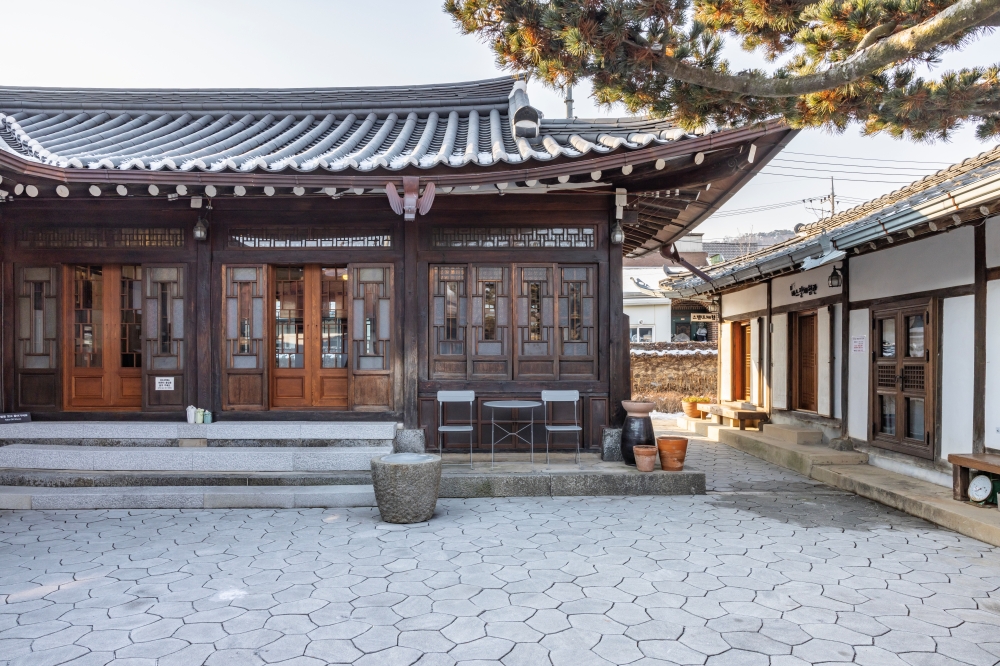
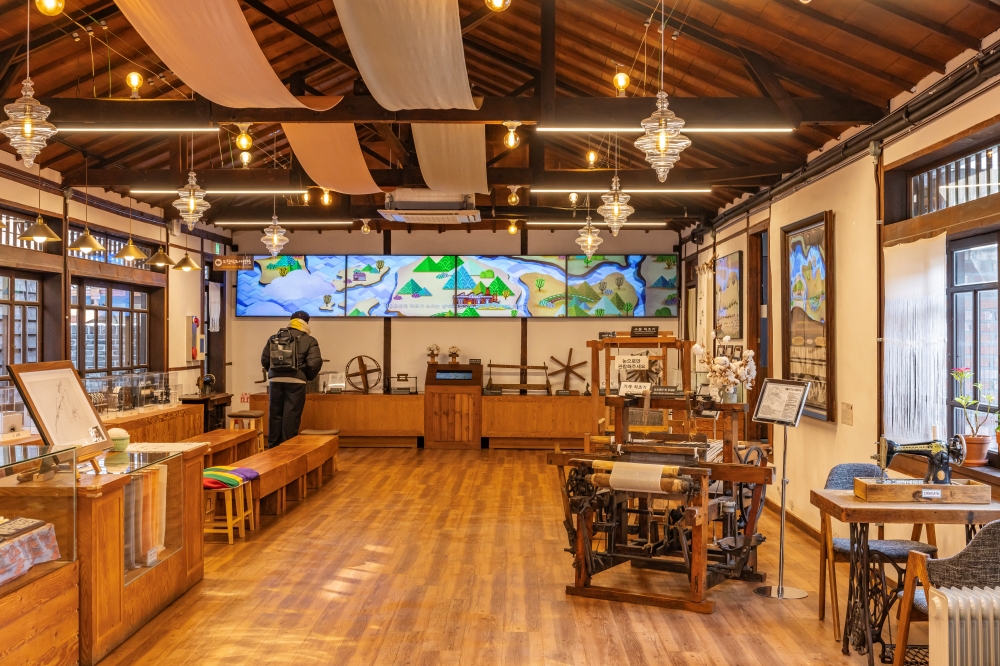
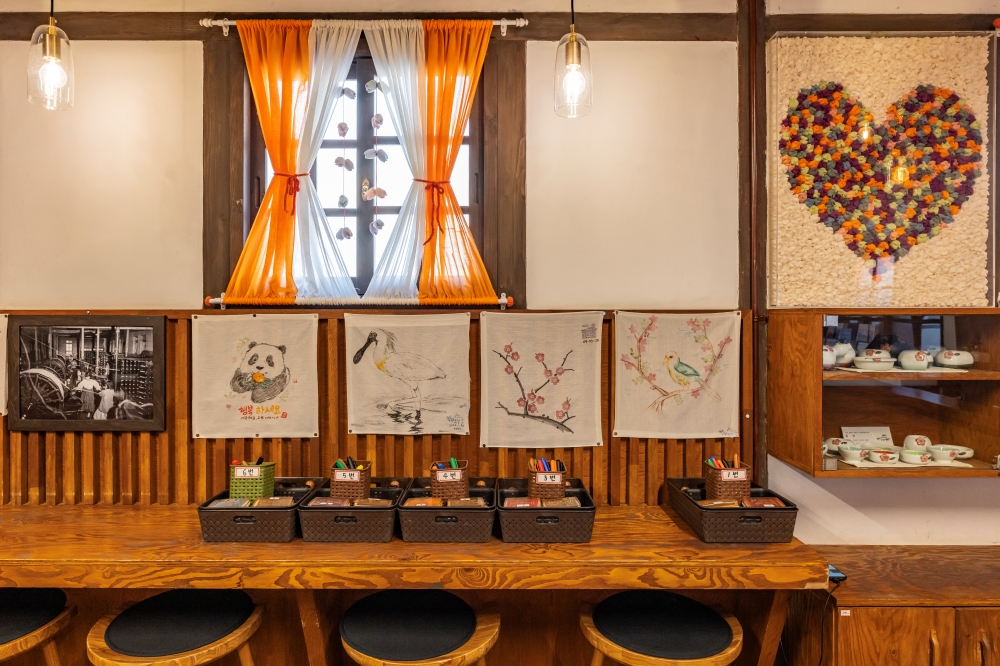
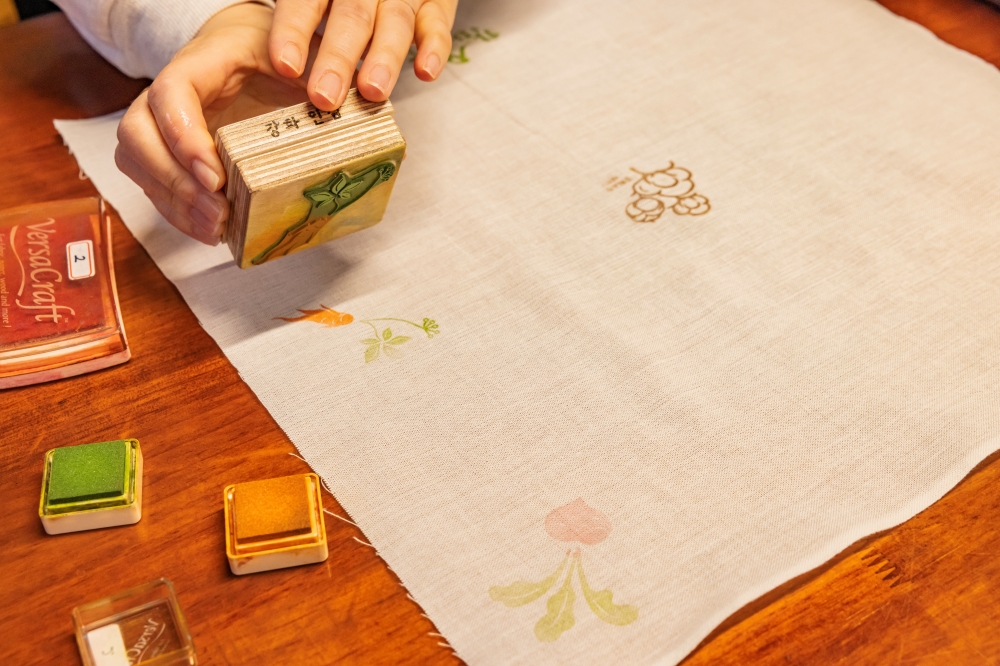
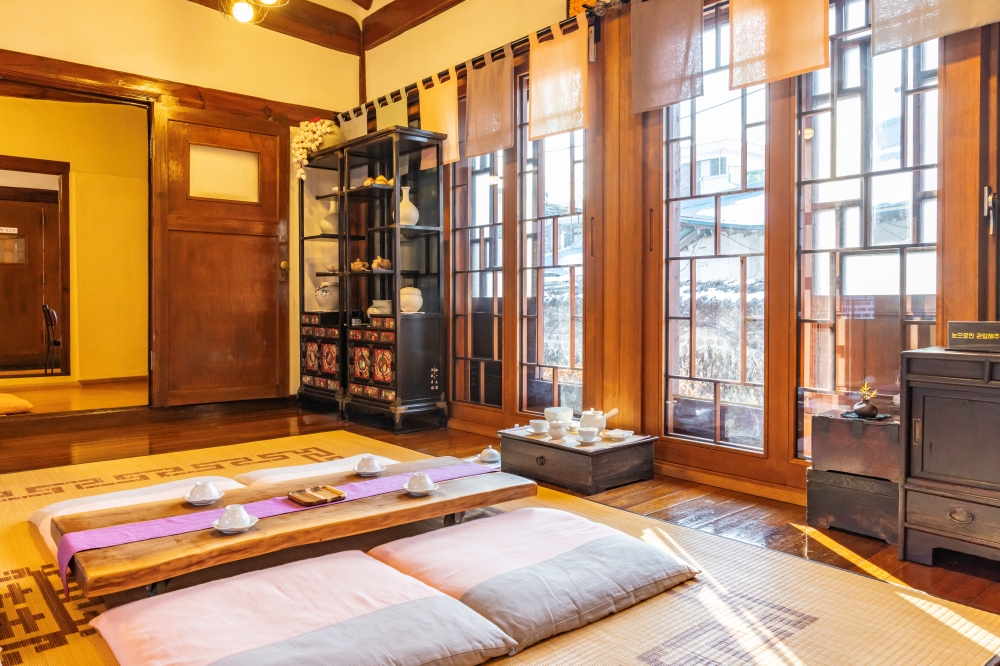
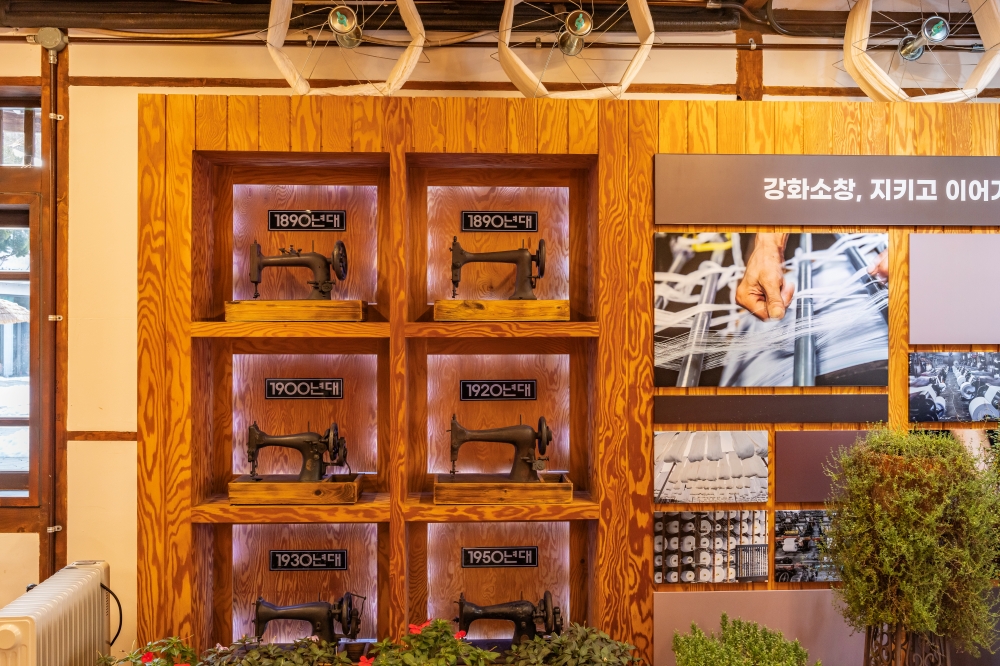
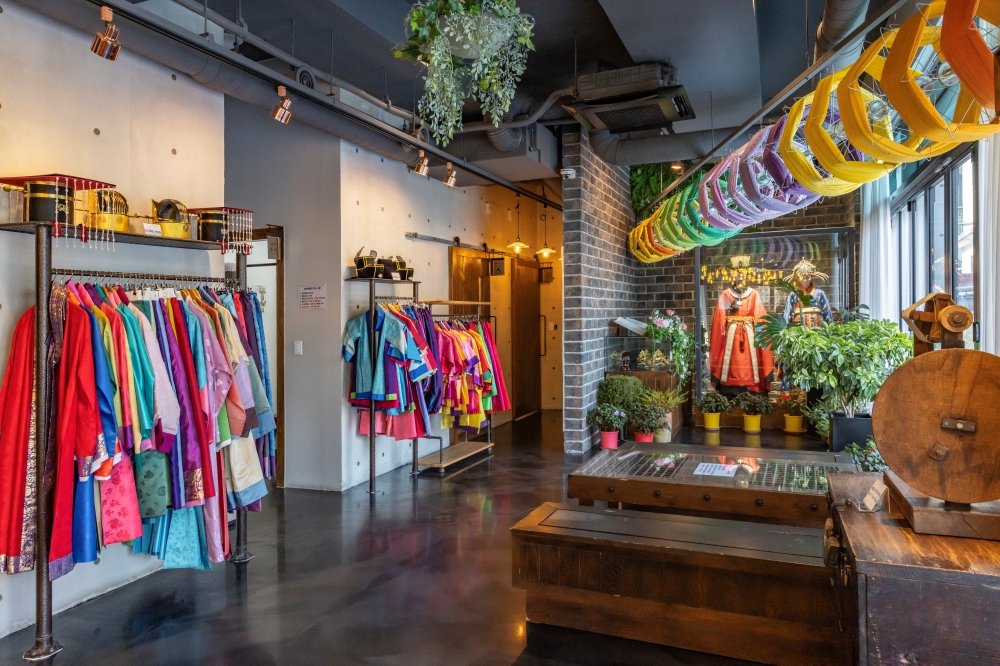



 121
121


